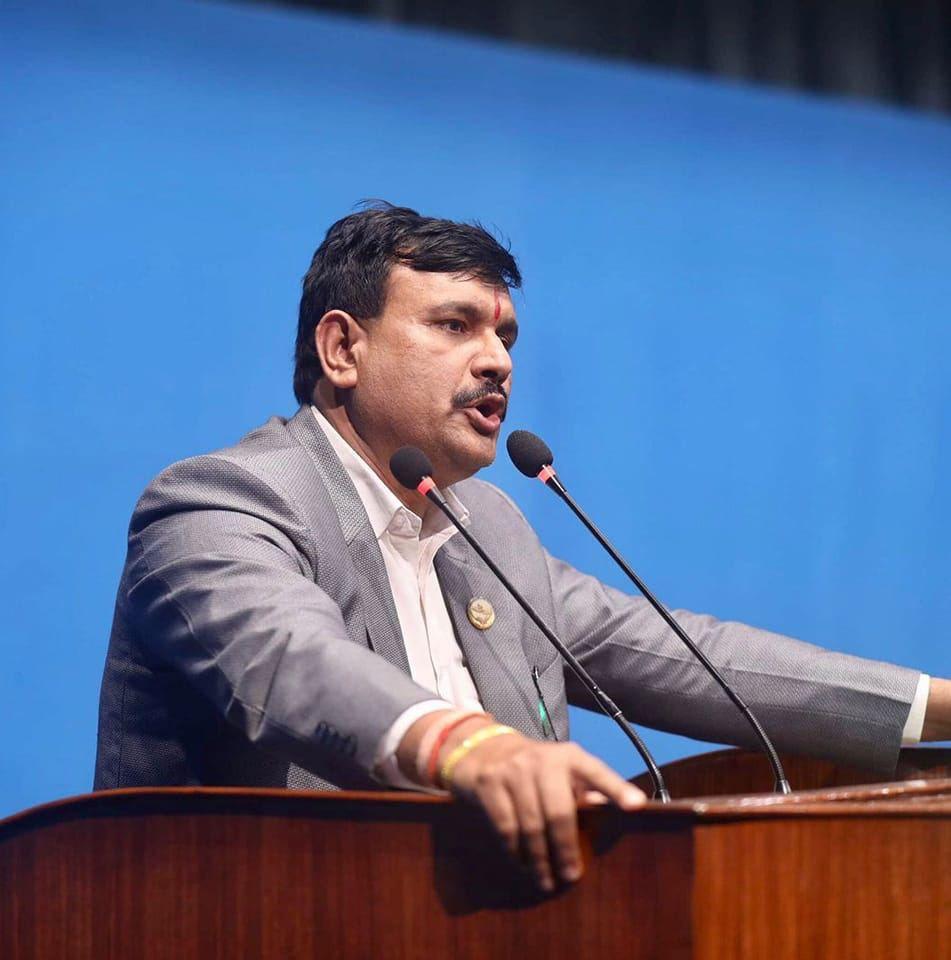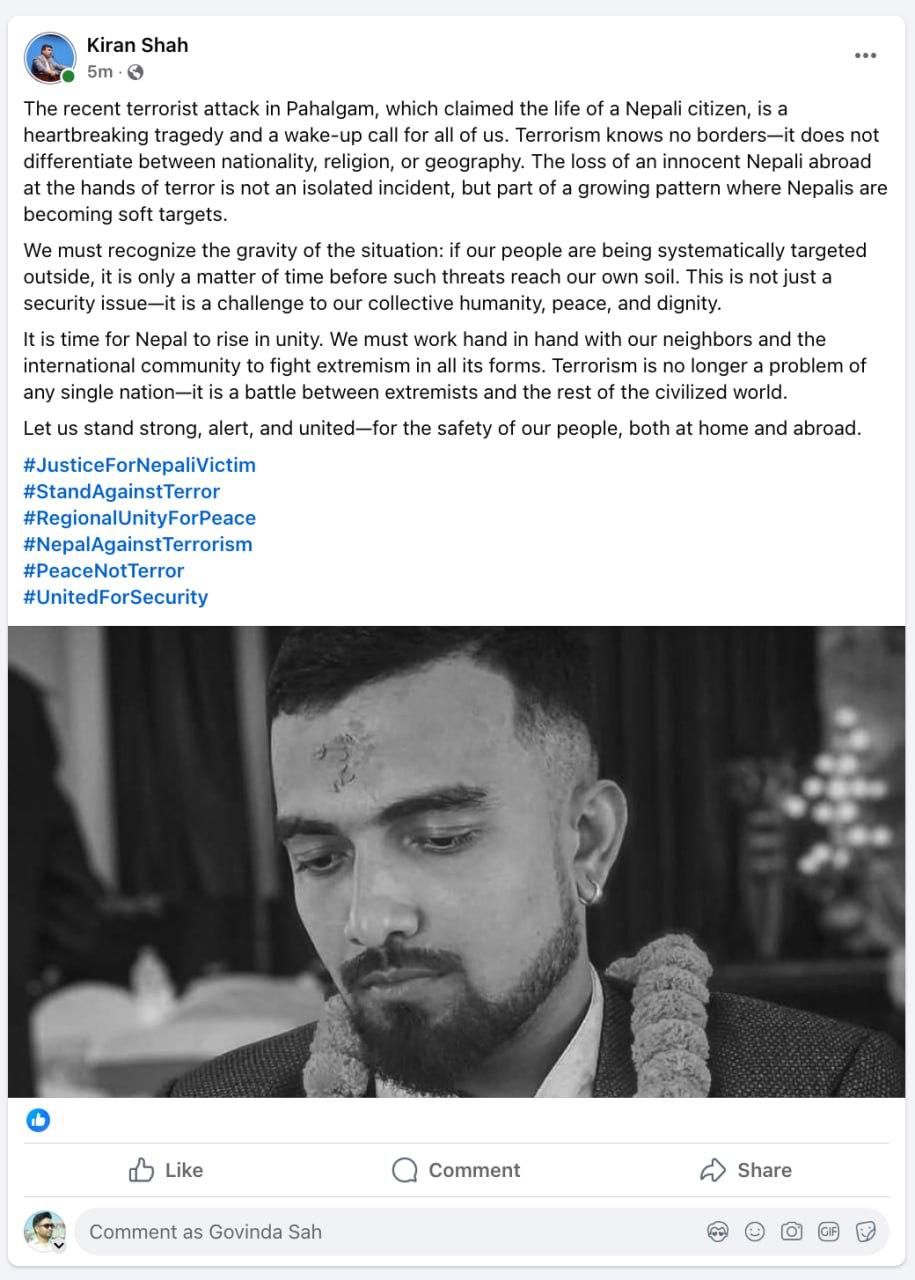Nepalis Abroad Now Targets of Islamic Terror: UML MP Shah Urges Immediate Action

KATHMANDU: In a strong response to the recent terrorist attack in Pahalgam, Kashmir, which killed at least 26 people, including a Nepali citizen Sudip Neupane, Member of Parliament Kiran Kumar Shah has warned that Nepalis abroad are increasingly becoming targets of Islamic terrorism, and that Nepal must act decisively before such threats reach its own soil.
Writing on Facebook, Shah—who was elected as an independent and later joined the CPN-UML—described the attack as “a heartbreaking tragedy and a wake-up call for all of us.” He emphasized that the growing trend of Nepali nationals falling victim to terror attacks abroad reflects a dangerous pattern that can no longer be ignored.
“If our people are being systematically targeted outside, it is only a matter of time before such threats reach our own soil,” Shah warned in his post, noting that this is not just about security but about Nepal’s collective dignity and humanity.
The assailants in the Pahalgam attack reportedly demanded to know the victims’ religion before opening fire, exposing a religiously motivated pattern of violence that Shah referred to as a direct threat to all civilized societies.
He called for national unity and regional cooperation to combat what he called a growing wave of extremist violence, stating that terrorism is no longer the concern of any one country.
“Terrorism is now a battle between extremists and the rest of the civilized world,” he wrote. “Nepal must rise in unity and work hand in hand with its neighbors and the international community to defeat this threat.”
Shah's post, which included hashtags such as #JusticeForNepaliVictim, #NepalAgainstTerrorism, and #RegionalUnityForPeace, has sparked widespread discussion on social media and renewed calls for the Nepali government to take a more assertive stance on terrorism in the region.
His statement comes amid growing concern over the increasingly open embrace of extremist rhetoric and jihadist ideology by Pakistan’s military leadership, which regional analysts have linked to the escalation of proxy violence in neighboring countries.






![From Kathmandu to the World: How Excel Students Are Winning Big [Admission Open]](https://nepalaaja.com/img/70194/medium/excel-college-info-eng-nep-2342.jpg)


